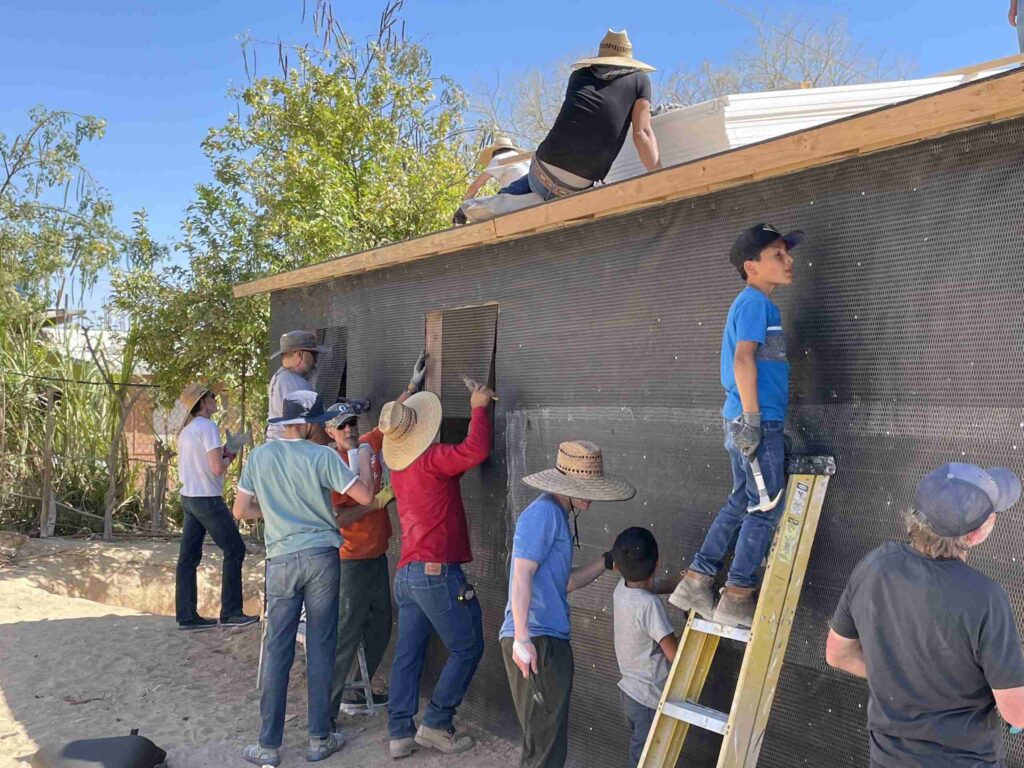My nephew was a very young boy when he blurted out some colorful language at an appropriate time. The salty expression fit the moment, but he should have expressed his sentiments differently. His parents were clearly embarrassed as one stammered, “Where did you learn that?” Without hesitation, my nephew simply said, “Dad.”
Sometimes we parents forget our little ones are watching everything and doing their best to duplicate who we are and what we do. Some of the things they duplicate come back to bite us because we also forget we are our children’s most powerful role models.
Both parents learned a valuable parenting lesson. Sometimes we forget that our little ones are watching everything, doing their best to duplicate who we are and what we do. Some of the things they duplicate come back to bite us. We underestimate that we are the most powerful role models for our children, and all too often, when we don’t even notice they are copying us. If they’re going to copying you, let them copy these things:
Self-Improvement
Let your child catch you trying to make yourself better. When your children witness you embarking on a journey of self-improvement, they’re not just observing your actions; they’re absorbing life lessons. By openly displaying your commitment to growth, you instill in them the value of personal development and the belief that change is possible. They learn resilience, seeing you face challenges head on and persist despite setbacks. Your efforts also model self-awareness and accountability, showing them the importance of reflecting on one’s actions and taking responsibility for them. As they witness your growth, they gain deeper understanding of empathy and support, realizing that everyone, including their dad, is evolving continually. Ultimately, your self-improvement journey becomes a powerful teaching tool, shaping their attitudes, behaviors and beliefs for years to come.
Serving/Volunteering
Make it a regular habit to invest in your community and volunteer your time and talents alongside your family. When children observe their dad engaging in acts of service and volunteerism, they witness firsthand the profound impact individuals can have on their communities and around the world. By actively participating in service activities, a dad demonstrates the importance of empathy, compassion and altruism. Kids learn the value of giving back to others and contributing to the greater good, fostering a sense of responsibility and civic duty. Seeing Dad serve also instills a sense of gratitude and humility — and it promotes in a child recognition and understanding of the privileges they may have and the importance of using them to uplift others.
Self-Control
When children witness their father exercising self-control, they’re exposed to a powerful lesson in emotional regulation and responsible decision-making. By modeling restraint in the face of temptation or adversity, a dad demonstrates the importance of patience, discipline and impulse management. Children learn self-control is essential not only for achieving personal goals, but also for maintaining healthy relationships and navigating life’s challenges effectively. Further, observing their dad exercise self-control can cultivate a sense of security and stability as children see reliable role models who can manage their emotions and actions with grace and composure. This exposure to self-control fosters empathy and understanding as children learn how to respect boundaries and consider the consequences of their own behavior. Ultimately, seeing their dad demonstrate self-control equips children with valuable skills for navigating the complexities of life with grit, integrity and maturity.
Walking the Talk
When children observe their dad “walk the talk,” they witness the alignment of words with actions, which serves as a powerful lesson in integrity and authenticity. By consistently demonstrating the values and principles they espouse, fathers provide a roadmap for their children to navigate the complexities of life with honesty and sincerity. This behavior cultivates trust and respect as children learn to rely on the consistency between what is said and what is done. Also, witnessing their dad’s commitment to his beliefs or his faith fosters a sense of accountability and responsibility, encouraging children to hold themselves to the same standards. This alignment between words and actions also reinforces the importance of genuineness and transparency in relationships, paving the way for meaningful connections based on trust and mutual respect. Ultimately, when parents “walk the talk,” they not only model honesty and legitimacy but also empower their children to do the same, setting them on a path towards personal fulfillment and success.
Our children are sponges — so let’s help them soak up the right stuff.

